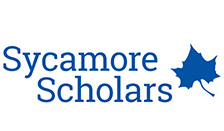Abstract
Introduction: Current literature shows that Native Americans people experience more health care disparities relative to other ethnic and racial groups. Previous research has also shown that these healthcare disparities are present in pediatric and young adult Native American populations. As healthcare professionals who will potentially treat these populations, it is important to understand the knowledge of and attitudes toward Native Americans people among athletic trainers. The purpose of this pilot study was to describe the knowledge of, and attitudes and opinions of National Collegiate Athletics Association (NCAA) Division I athletic trainers toward Native Americans. Methods: An electronic survey (Table 1) was sent to every NCAA Division I athletic trainer whose email address was publicly available on their institution’s website (n = 3,016). A total of 253 (age = 34 ± 11 years, experience = 11 ± 10 years, 61 females, 42 males, 1 non-binary) athletic trainers opened and completed the survey. Questions asked participants to provide demographic information, including age, years of experience, gender identity, race, and ethnicity. Participants also completed questions related to comfort providing equitable care for Native American patients, attitudes toward Native Americans and knowledge of contemporary, historical, and sports medicine issues specific to Native Americans. Pearson’s correlations were used to determine relationships between age, years of experience, attitudes toward Native Americans, and knowledge of contemporary, historical, and sports medicine issues specific to Native Americans with significance set at p < .05. Results: The majority of participants reported generally favorable attitudes toward Native Americans. There were significant, very weak negative correlations found between attitudes toward Native Americans and age (r(251) = -.258, p < .001) and years of experience (r(251) = -.223, p < .001). There were also significant, very weak positive correlations found between knowledge of Native American sports medicine issues and age (r(251) = .275, p < .001) and years of experience (r(251) = .277, p < .001). When asked about providing equitable care for Native American patients, 94.4% (n = 239) participants expressed some level of comfort with providing equitable care. However, participants had mean scores of 26.4% for knowledge of contemporary Native American issues, 33.4% for knowledge of historical Native American issues, and 64.6% for knowledge of sports medicine Native American issues. Clinical Applications: While the majority of participants expressed generally favorable attitudes toward Native Americans people, there appears to be a gap between attitudes and knowledge of issues facing Native American patients. Professional masters in athletic training curricula and continuing education offerings should provide information about providing equitable healthcare for Native American patients.
Recommended Citation
Trail, L E.; Warner, L K.; Warner, B J.; Decker, M; and Cage, S A.
(2023)
"Knowledge of and Attitudes Toward Native American and First Nations People Among NCAA Division I Athletic Trainers,"
Clinical Practice in Athletic Training: Vol. 6:
Iss.
3, Article 4.
Available at:
https://scholars.indianastate.edu/clinat/vol6/iss3/4

